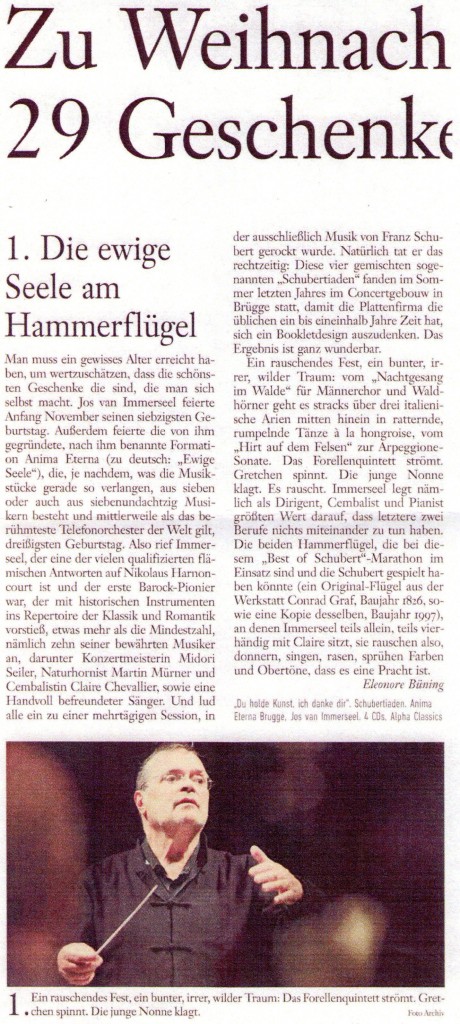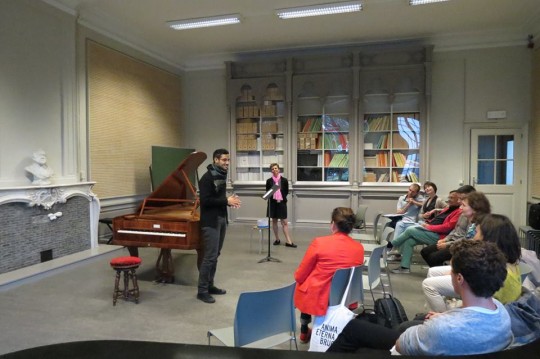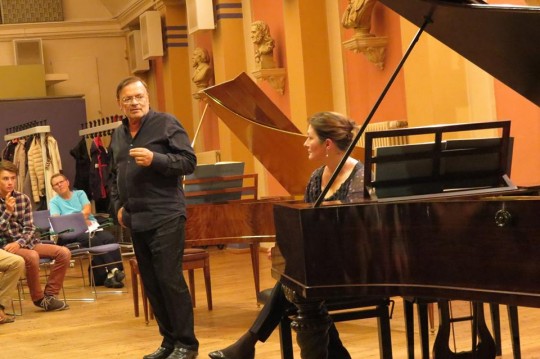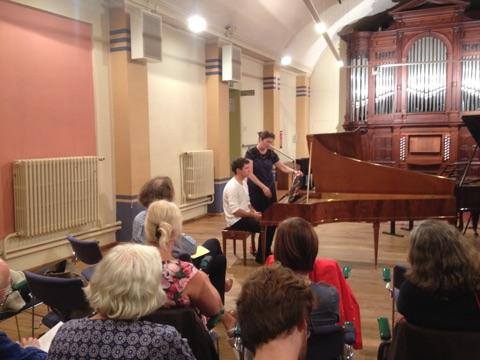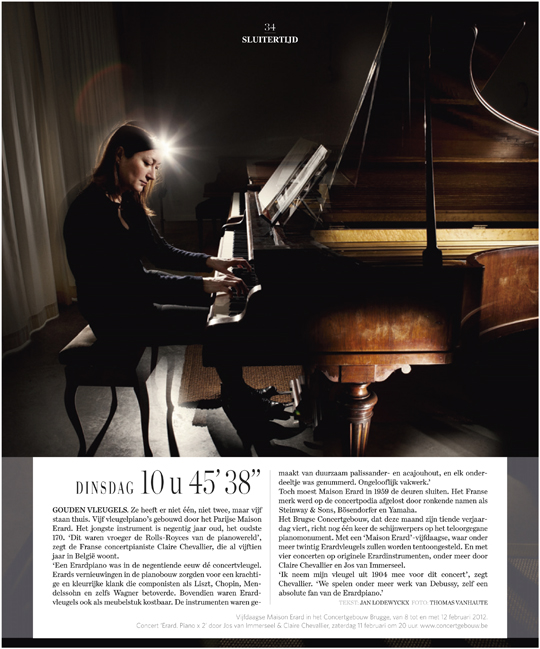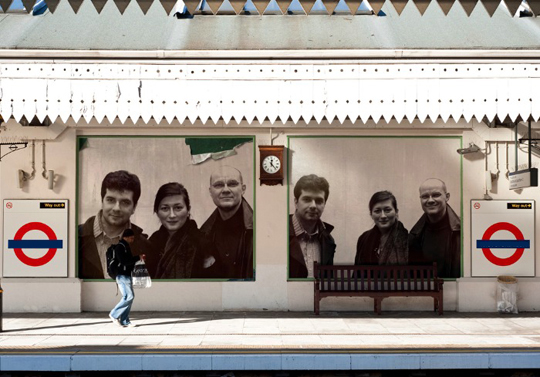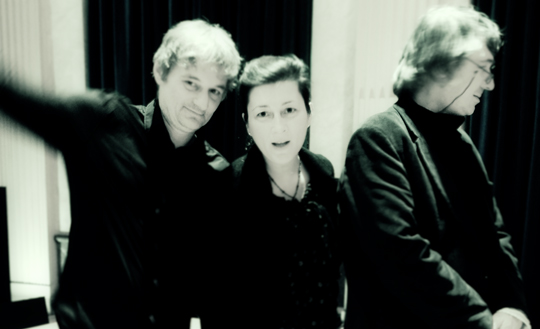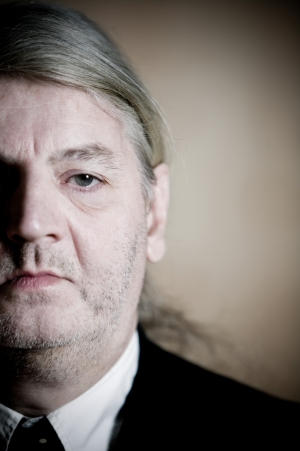AEB-Master Class Series
PERIOD: AUGUST
The idea to organize a yearly master class arose from an assessment of the current status of early music education. Curricula and workshops devoted to ‘Early Music’ are being offered by several institutes, allowing for specialists to pass on their knowledge to a new generation of musicians. While the domain of early music – usually stretching from medieval to 18th-century – is at the center of attention, music from later era’s is usually left out. This is the domain Anima Eterna Brugge has been exploring for over 25 years. As much joy as it has given us to aggregate and internalize these skills and practices, we feel it would be at least equally gratifying to share them and pass them on to the musicians of the future.
Teachers:
Fortepiano: Jos van Immerseel & Claire Chevallier
Violin: Brian Dean
Clarinet: Lisa Schklyaver
More instruments in 2016!
www.animaeterna.be / education
AUTOUR D’UN PIANO BECKER
Projet de recherche sur les pianos du 19ème siècle en Russie. Entretien avec Pierre Bouckaert. 2014
MOVIMENTO
Interview de Claire Chevallier au milieu de sa collection de pianoforte et dans des lieux très actifs de la crèation contemporaine de Bruxelles.
[audio:MOVIMENTO _ Claire Chevallier.mp3]
18.02.2012 – 16:00 France Culture
CHAMBER MUSIC BY SCHUMANN AND BRAHMS
Claire Chevallier, Vincenzo Cazale & Sergei Istomin
Sunday 19 Feb 2012 – 15.00 – AMUZ antwerp (B)
Programme:
Robert Schumann: Fantasiestücke, op. 73 – Intermezzo, op. 4 nr. 5 – Fuga, op. 72
Johannes Brahms: cello sonata in e, op. 38 – trio in a for clarinet, cello & piano, op. 114
Claire Chevallier, piano Bechstein c. 1870
Vincenzo Cazale, German clarinet late 19th C.
Sergei Istomin, violoncello late 19th C.
During a concert tour in 1853 young Johannes Brahms was introduced to the couple Robert and Clara Schumann. They struck up a friendship for life, and the favourable criticism of the influential Schumann was instrumental in putting Brahms on the map as a composer. Amie d’AMUZ Claire Chevallier will bring some talented soloists along for a concert of intimate chamber music by the two soul mates. You will hear Drei Fantasiestücke für Klarinette und Klavier completed by Schumann in just two days. The sudden changes of mood in these ‘wordless songs’ reflect the deeply romantic character of the composer. Included is also Brahms’ fabulous first cello sonata, a work conceived as a homage to Bach, referring thematically to Die Kunst der Fuge. To cap it all, Brahms’ Trio für Klarinette, Violoncello und Klavier will offer a supreme example of Brahms’ late chamber music, subdued and intense.
Robert Schumann ( 1810-1856)
Intermezzo op.4 n° 5, pianoforte solo
Fugue op.72 n°1, pianoforte solo
Fantasiestücke für Klarinette und Klavier op.73
Zart und mit Ausdruck
Lebhaft, leicht
Rasch und mit Feuer
Johannes Brahms (1833-1897)
Sonate op.38, e-Moll , für Violoncello und Klavier
Allegro non troppo
Allegretto quasi Menuetto
Allegro
Johannes Brahms (1833-1897)
Trio für Klarinet, Violoncello und Klavier , a-moll, op114
Allegro
Adagio
Andante grazioso
Allegro
> reserve your tickets and find more information on the website of AMUZ
Télérama_Liszt_BRAVO_22oct2011
Télérama, 22 octobre 2011: “BRAVO”
par Gilles Macassar
” Cet enregistrement doit son titre énigmatique et sa réalisation à une poussée de fièvre. De fièvre amoureuse, pour le répertoire lisztien le plus personnel (les deux Légendes de Saint-François) et pour l’instrument le plus fidèle à reproduire ses moirures, le plus souple à moduler ses accents: un piano Erard, de la famille de facteurs parisiens du 19ème siècle, rivaux de Pleyel. Collectionneuse avisée de claviers historiques, Claire Chevallier, brillante soliste française installée en Belgique, détient un de ces précieux spécimens, dont Liszt louait la légèreté et la fiabilité autant que la puissance. La chaude clarté des registres, dans le médium et les graves, la rondeur des aigus, colorent d’une volupté idéale la courbe des élégies lisztiennes. “On aura beau dire et beau faire, assurait le compositeur à son ami Pierre Erard, il faut désormais des claviers de femmes.” Et des femmes au clavier. “
ROOTS
Men krijgt zelden de kans de altviool in een solistenrol te horen en dat in een programma door twee topmusici: Paul De Clerck (Le Banquet Céleste, Edding Quartet) en pianiste Claire Chevallier.
Ze brengen muziek voor altviool en pianoforte die teruggrijpt naar het verleden. Componisten kunnen dat doen via persoonlijk getinte hommages aan hun voorgangers, maar kunnen ook oude composities bewerken, citeren, herinterpreteren… Het leverde heel wat bijzondere muzikale parels op van o.m. Stravinsky, Britten, Reger en Hindemith.
Befaamd jazzmusicus Kris Defoort schreef op vraag van De Clerck en Chevallier een nieuw werk ‘Reflections in the dark’, vertrekkend vanuit oude muziek.
Het geheel is een indrukwekkende voorstelling, waar je als publiek héél dicht op zit.
Liszt/O Death
CONCERT/SPEECH
Claire Chevallier Piano, Erard 1876
Jan Decorte & Sigrid Vinks, Speech
Franz Liszt Funérailles, Andante Lagrimoso, Méphisto Waltz, Légende Saint François D’assise, La Prédication Aux Oiseaux, Légende Saint François De Paule, Marchant Sur Les Flots, Wiegenlied
Once again, those viewing Liszt as a composer of dazzling but hollow salon pieces are in for a surprise: this recital shows him at his most profound and contrasted, presenting a selection of pieces that seem to work towards their own resolution, moving from death to birth, from hell to heaven, and from darkness to light. The performer is Claire Chevallier, an insightful French pianist who has made Brussels her home and owns half a dozen period Erards, one of which will be lugged to Flagey’s Studio 4 for the occasion. She will be joined by Belgian actor Jan Decorte, who produced a memorable staging of Purcell’s Dido and Aeneas for the KlaraFestival five years ago and will this time contribute extracts from Aeschylus’ Oresteia to form a stark counterpoint to the music.
Co-production:
Festival van Vlaanderen Brussel & Flagey
Co-presentation:
Amuz Antwerpen
(Photo: Jan Decorte © Danny Willems)

